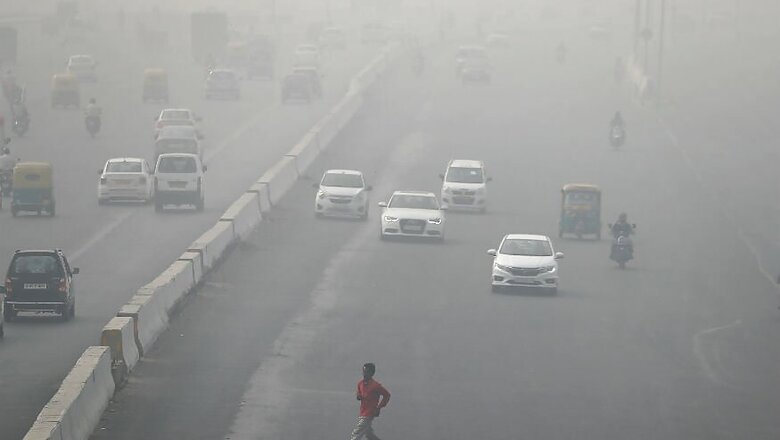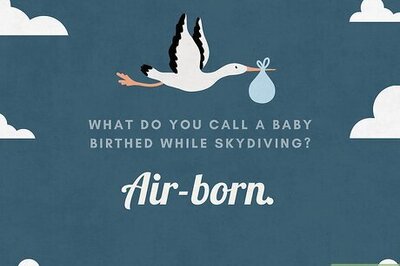
views
New Delhi: Air quality in Delhi, 'very poor' since November 23, remained unchanged on Tuesday, with high-level of nitrogen dioxide (NO2) across residential areas heightening the toxicity of the haze.
The United Nations marked the day as the first international smog day. It is a moment to remember all of the people who have died prematurely, and avoidably, because of the air pollution, the United Nations Environment Programme (UNEP) said in a statement.
The city's average Air Quality Index (AQI) was 378 on a scale of 500, classified as 'very poor', marginally better than yesterday's 390.
The haze did not disrupt the proceedings of the ongoing test match between India and Sri Lanka at the Feroz Shah Kotla, however, the Lankans wore N95 anti-pollution masks while fielding. One of the players even threw up a couple of times.
The concentration of NO2 breached the 24-hour safe limit of 80 micrograms per cubic metre (ug/m3) in areas like Dilshad Garden, ITO, Mandir Marg, Anand Vihar and R K Puram.
At RK Puram, a densely populated residential area, NO2 was recorded at 135 ug/m3 while levels at ITO, which witnesses heavy volume of traffic, was 206.
During the week, NO2 had climbed to levels as high as 195 at Anand Vihar while the same was 155 and 127 at RK Puram and Dilshad Garden, respectively.
According to the Central Control Room for Air Quality Management of the CPCB, the concentration of the most dominant pollutants, PM2.5 and PM10, were 261 and 438 ug/m3 around 5
pm.
Pollution is considered severe plus or emergency when readings of PM2.5 and PM10 cross 300 and 500 ug/m3, respectively. The corresponding prescribed standards are 60 and 100.
Six out of the CPCB's 17 stations had 'severe' quality air, which affects healthy people and seriously impacts those with existing respiratory or cardiovascular diseases, by 6 pm.
The rest was in the 'very poor' zone, which comes with the warning that people may develop respiratory illness on prolonged exposure.
An AQI between 0-50 is considered Good, 51-100 Satisfactory, 101-200 Moderate, 201-300 Poor, 301-400 Very Poor, and 401-500 Severe.

















Comments
0 comment